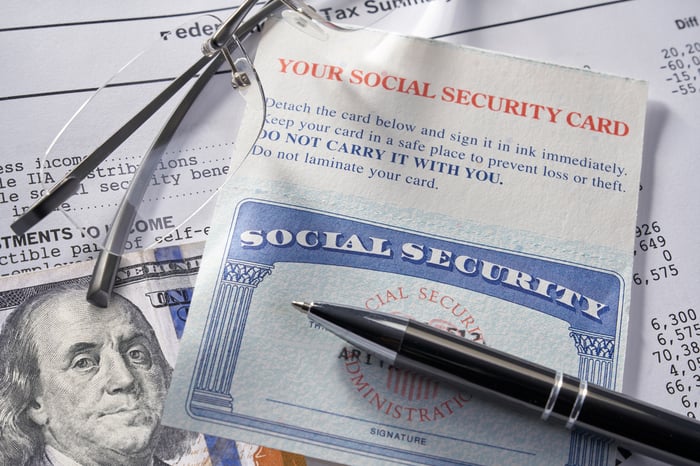One of the biggest retirement planning decisions you'll ever make is when to claim Social Security.
Most people can claim their retirement benefits at any point after you reach 62 years old. While claiming earlier will provide some additional cash upfront, it comes at a price. Your monthly checks will be reduced by as much as 43% versus what they could be if you wait to claim until age 70.
In fact, the average person will be better off over their lifetime by delaying until age 70. But that doesn't mean there aren't good reasons to claim benefits as early as 62.
With so many factors to consider, you might be worried about making a mistake when you claim Social Security. What's more, circumstances are always changing, which could turn a good decision into a bad outcome later.
Well, the Social Security Administration understands the gravity of the decision, and it gives you a bit of lenience. There are two rules everyone needs to know about Social Security before they turn 62, and they might just help you avoid a bad decision.

Image source: Getty Images.
The little-known Social Security undo button
The first rule you must know about Social Security is that you have one year to withdraw your application if you change your mind.
So, if you make a mistake and realize it early enough, it's relatively simple to press the undo button. Simply file form 521 with the Social Security Administration.
There's a catch, though. You have to repay all the benefits you've received since initially applying for Social Security. The SSA will let you know how much you must return along with its approval of your request.
That can leave many people in a tight spot. Let's say you went back to work and realized it no longer makes sense to take your Social Security benefits this early. You might be on a tight budget as is, and if you have to repay your initial benefits, you'll be stretched even further.
If you realize you cannot repay your benefits, or change your mind again, you have 60 days to cancel an approved withdrawal.
If you do successfully withdraw your application and repay the benefits you received, you'll go back to accruing a higher monthly Social Security check. It'll be as if you never applied for Social Security in the first place.
Importantly, you only get one Social Security do-over in your life. If you apply again before full retirement age, you're stuck with your new decision.
The good news is there's a second rule you can take advantage of.
What to do when it's too late to withdraw
The second rule you must know about Social Security is that you can suspend your benefits upon reaching your full retirement age. The full retirement age is 67 years old for those born in 1960 or later.
Suspending benefits is a lot easier on the wallet than withdrawing your application. You'll stop receiving your monthly benefits check, but you won't have to repay any of the benefits you've already received.
Meanwhile, you'll accrue delayed retirement credits on your worker benefits for as long as your benefits remain suspended up until you reach age 70. At that point, payments will automatically start again if you haven't resumed them already, and your check will be noticeably higher. You'll receive an 8% bump per year while your benefits are suspended on top of the regular cost-of-living adjustment.
There are some pitfalls to be aware of when suspending your benefits. First of all, you'll now be responsible for paying Medicare Part B premiums directly. The SSA automatically deducts those premiums from your monthly check, but now that you aren't receiving a check, there's nothing to deduct them from. Medicare Part B premiums will cost $174.70 per month for most people in 2024 (more if you have an income greater than $103,000 as an individual or $206,000 as a couple).
The second pitfall is that anyone collecting benefits on your Social Security record will also stop receiving them (except for a divorced spouse). Your spouse may be eligible to collect on their own record while your benefits are suspended, but it's important to keep this in mind when planning for your whole household's finances.
Use these rules to make more confident decisions
These rules can be used as a safety net for early Social Security claims. Delaying Social Security as long as possible is usually the smart move, but some circumstances dictate you should claim early. If those circumstances change, however, you don't want to be stuck with your decision. Thankfully, you don't have to worry if you know the rules.




